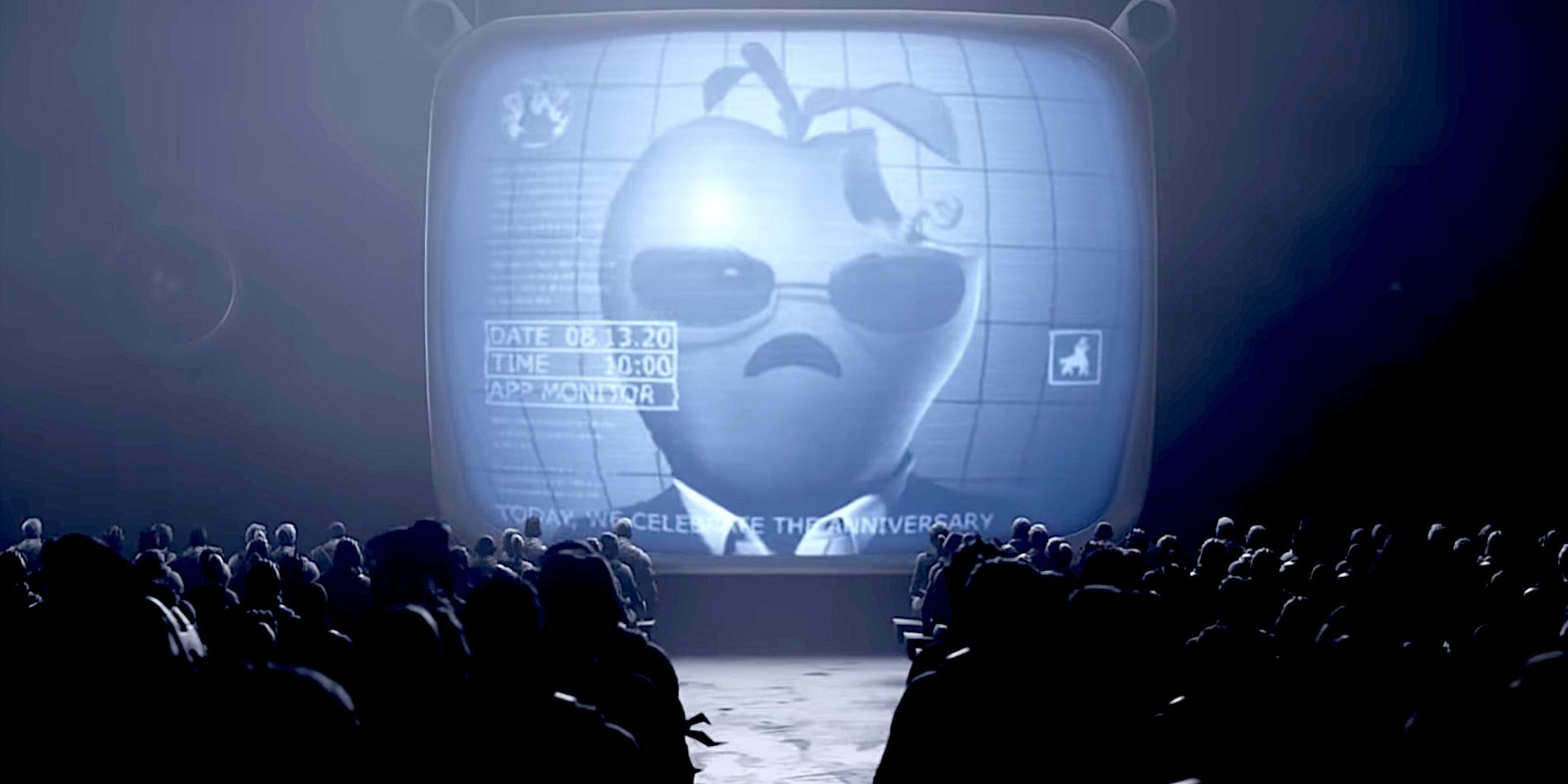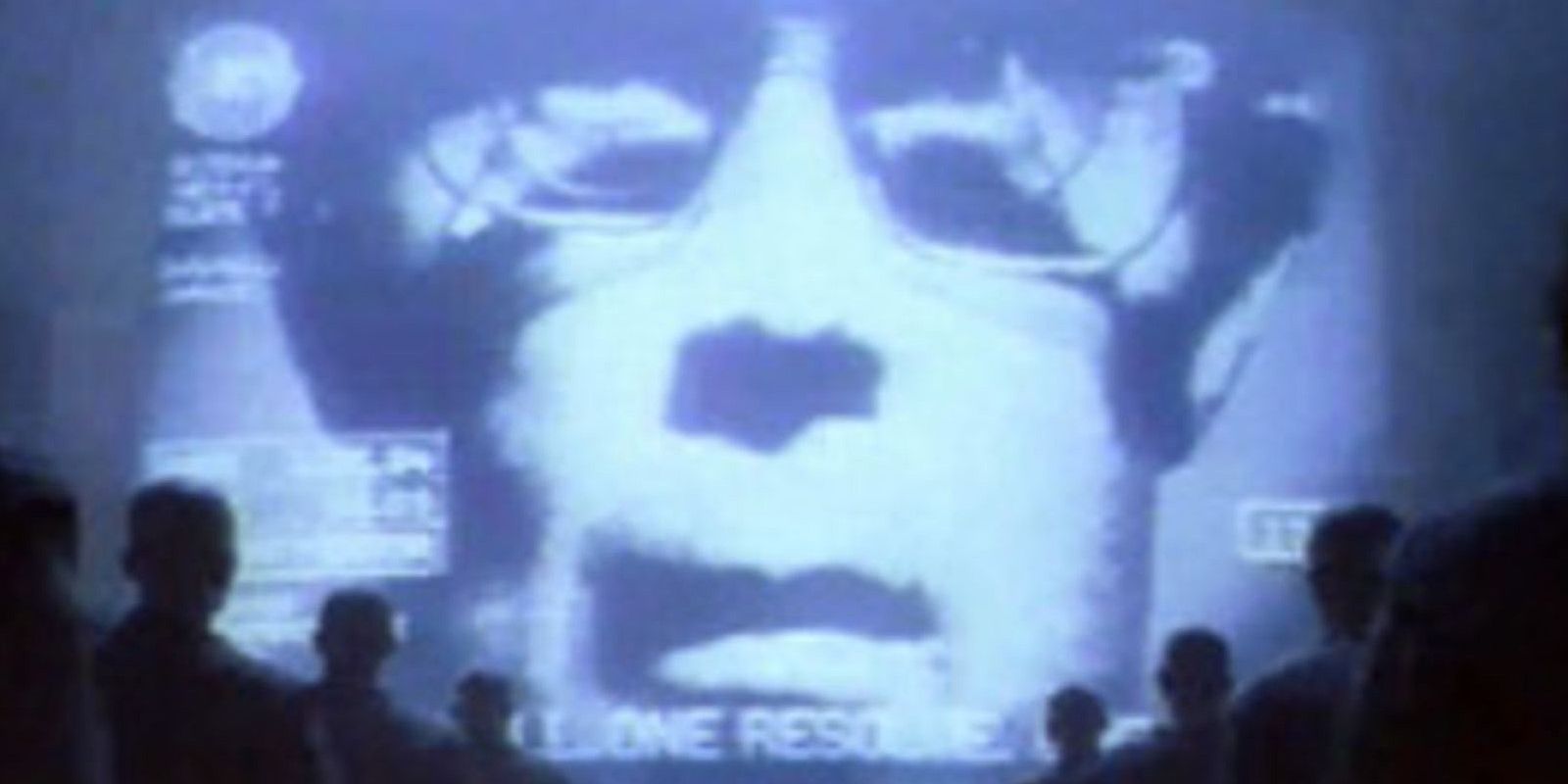Fortnite is one of the most popular multiplayer games of the current era, but it's also currently the centerpiece of an ongoing battle between developer Epic Games and two of the biggest tech giants in the world, Apple and Google. Fortnite recently changed its mobile app's in-game store to allow for purchasing in-game currency directly from Epic Games, circumventing the 30% cut taken by both Apple's App Store and Google's Play Store. In response to this violation of their terms of service, both companies removed Fortnite from their digital marketplaces. And in response to that, Epic launched a fully-fledged lawsuit against both companies, alleging the closed ecosystem of both stores creates an anti-competitive monopoly.
As a part of this campaign to "free Fortnite," Epic released a 48-second short on their YouTube. The video shows a monochromatic apple speaking to a group of Fortnite avatars, speaking about the profits of their "platform unification initiative" before being smashed by a unicorn-hammer-wielding heroine in bright pink. While the video is an obvious parody of Apple's famous 1984 ad, there's no guarantee this would be obvious to the game's player base, which is primarily made of younger players. You'd have to be 36 to have been born the year the original 1984 ad was released, and even older to have been old enough to remember it. While it's certainly possible some players would have seen an ad released a decade before they were born, it's unlikely to be a very high percentage.
While Apple's digital monopoly on iOS apps can seem unfair, it's hardly the great sin Epic makes it out to be. The company's walled garden is meant so iPhone and iPad users don't have to worry about downloading malware on to their devices. In addition, apps on the App Store can receive a great deal of promotion from being associated with the first-party digital marketplace Apple creates. Does that justify Apple's 30% tax? There's a genuine conversation to be had on whether or not it does, but Epic isn't attempting to create a conversation so much as start a riot.
Because of this, Epic's in-game ad comes across less as a clever parody and more as a black-and-white portrayal of what side Fortnite players should take. Apple is portrayed as a fascistic corporation bent on dominating the world, and Epic the plucky protagonist fighting for freedom. Both Vice, as well as filmmaker Ridley Scott (who directed the original ad), have criticized the video, with Vice's Patrick Klepeck claiming "the actual thing they presented was terrible," and Scott saying it "would have been energy better spent if there was genuine social purpose." It's easy to see why, as the video comes across like something meant to be sweeping and important, an indictment of a great ill of society.
Apple's original ad might have carried the same self-important tone Epic's recreation does, but it employed that pomp and circumstance to different effect. Apple created its video in an attempt to influence a culture war between itself and IBM in their competition for the personal computing market. But there's a pretty important distinction to be made in this case -- Apple wasn't suing IBM at the time.
Epic's goal is to influence public opinion, turning their broader player base against Apple in an attempt to push the needle on an eventual court ruling. And it's important to remember the motive behind all of this: money. Epic isn't entering into a legal case against one of the biggest companies in the world out of sympathy towards independent game developers. Fortnite made half a billion dollars in its first year on the App Store, and Epic would like to keep a larger chunk of the hundreds of millions of dollars it'll make in years to come.


